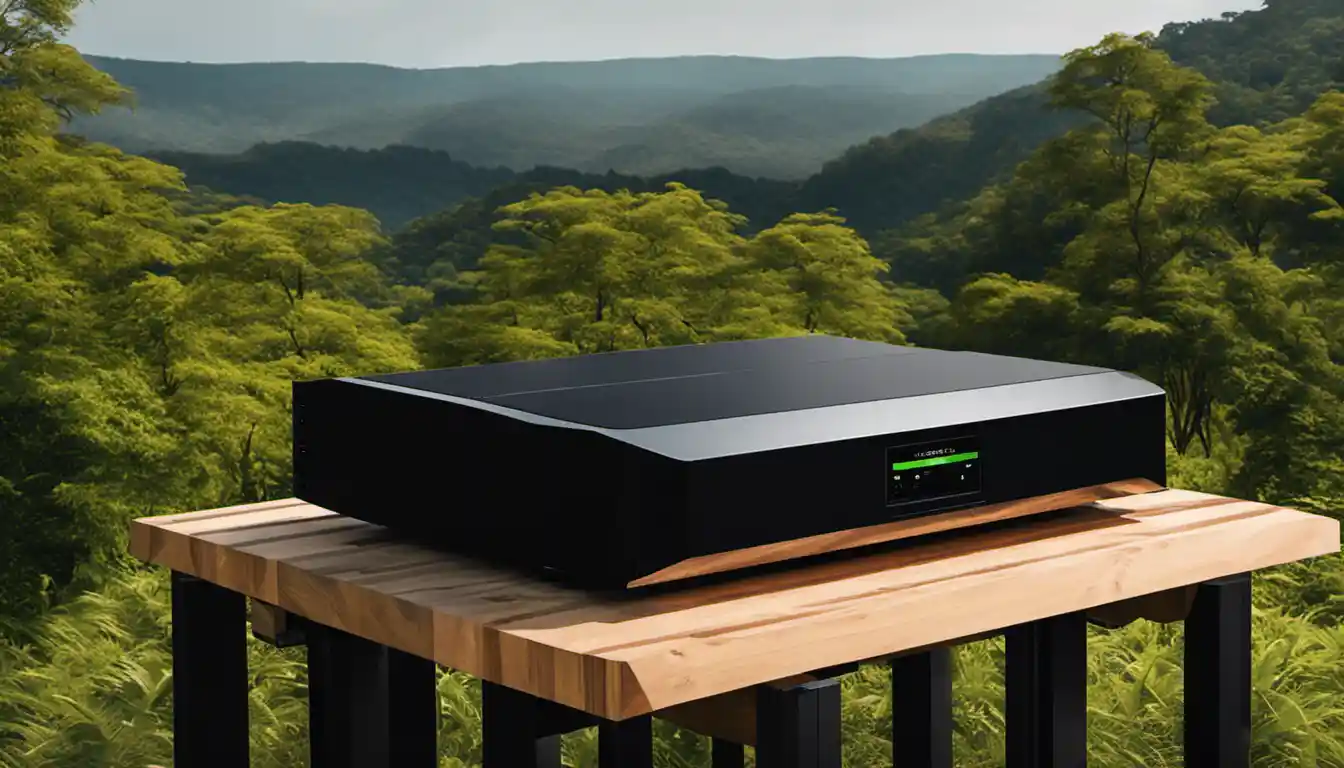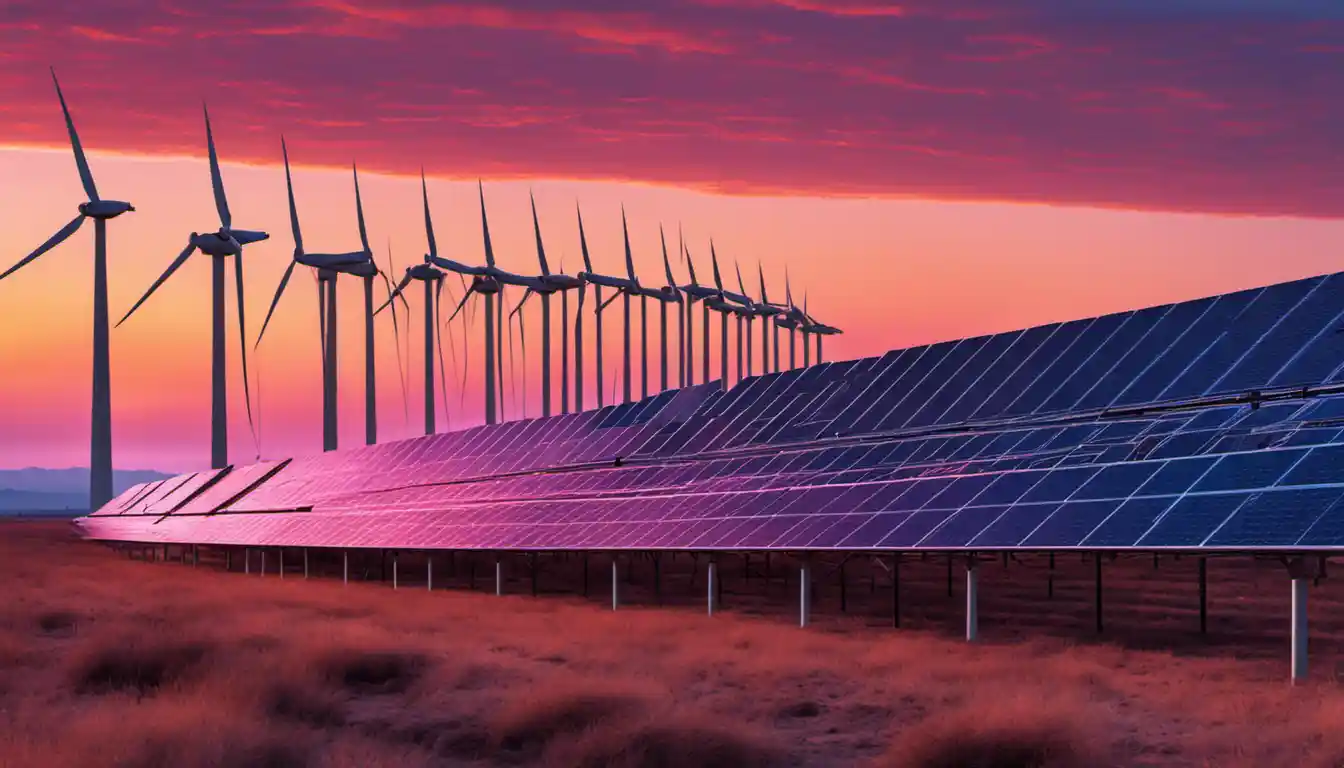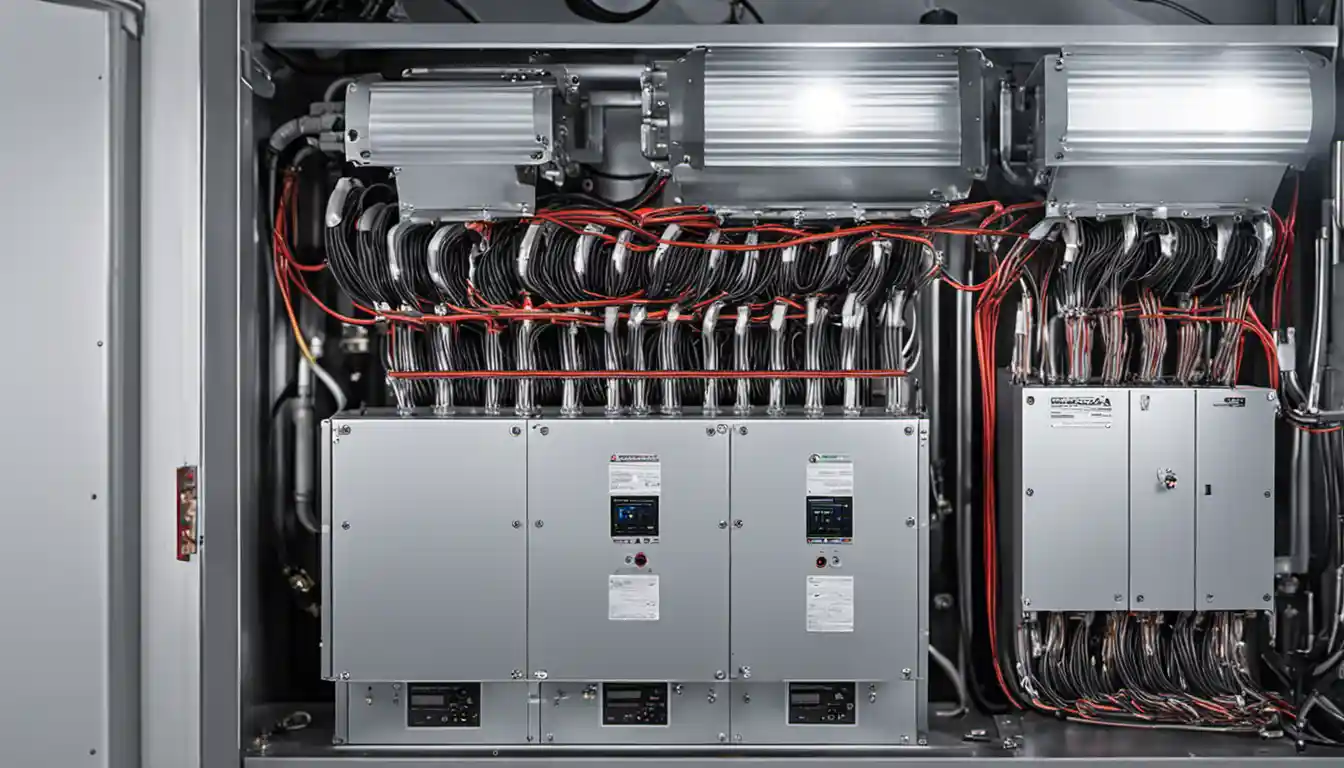Understanding Solar Inverters
The best solar inverters heavily depend on your specific system needs, but some top-rated brands for 2021 include Enphase IQ7+ Micro-inverter and SolarEdge HD-Wave Inverters. These options are consistently praised for their high efficiency, reliability and advanced technology.
What are Solar Inverters?
Solar inverters, to put it simply, are the magical boxes responsible for transforming the direct current (DC) – the one produced by your solar panels – into alternating current (AC). Without getting too technical, AC is the form of energy practically all modern household devices run on, from your fridge to your phone charger.
See also: Which Inverter Battery Is Best (Calculated Options)
Solar Inverter Functions and Potential Problems
These sophisticated machines have two primary functions – inverting the DC into AC and maintaining the electrical safety of your solar system. They have the essential responsibility of shutting down the solar energy feed when they detect an issue, like a power outage, to protect professionals working on the power lines from an unexpected jolt of solar energy.
However, like all devices, inverters aren’t immune to failure. They can have potential problems like underperformance due to heat, software issues or simple lifespan limitations (they typically last 10-15 years, shorter than the usual 25+ lifespan of solar panels).
See also: Best Inverter For 100Ah Battery (+ Calculations)
Major Differences Among Solar Inverters
There are several factors to consider when shopping for the best solar inverters. Key considerations include:
-
Cost: Are you willing to invest more upfront for a high-performance model with higher long-term ROI like Enphase IQ7+ Micro-Inverter?
-
Efficiency: Are you maximizing your solar investment and minimizing losses due to heat or other inefficiencies?
-
Power Output: Is the power output enough to accommodate your solar array’s capacity?
-
Warranty: Do you have enough warranty to protect your investment? Most brands offer warranties that range from 5 to 25 years.
See also: Solaredge Inverter Review: Evaluating Its Performance and Value for Money
Classifying Solar Inverters
Solar inverters are classified into four main types: string inverters, microinverters, hybrid inverters, and off-grid inverters. Let’s take a closer look.
See also: Enphase Inverter Review: An In-Depth Analysis of Performance and Efficiency
String Solar Inverters
A mainstay of the solar industry, string inverters connect panels in a series – or a string. This configuration is simple to install and cost-effective, as only one inverter is needed. However, an underperforming or shaded panel can impact the entire string, reducing overall system efficiency.
See also: Enphase Micro Inverter Review: A Comprehensive Guide to Efficiency and Performance
Microinverters
Microinverters, like the highly-rated Enphase IQ7+ Micro-Inverter, attach to each solar panel, allowing for individual performance and reducing the impact of one underperforming panel. They’re a reliable, high-performing solution but bear a higher upfront cost.
See also: Sungrow Inverter Review: An In-Depth Look at Performance and Features
Hybrid Inverters
As the name implies, these are mixtures of existing technologies. Hybrid inverters are popular in homes with solar battery storage, as they can handle inputs from solar panels and batteries, allowing for energy storage from both sources.
See also: Fronius Inverter Review: An In-Depth Analysis of Performance and Value
Off-grid Inverters

Perfect for those looking to go entirely off the grid, these inverters allow you to store excess power in batteries for future use. They have the added bonus of providing power during outages, but need extensive system design for maximum efficiency.
See also: Tesla Solar Inverter Review: A Comprehensive Look at Functionality and Efficiency
String Inverters and Power Optimizers
Some string inverters use power optimizers, attached to each solar panel, to mitigate the impacts of shade or wear and still offer the lower cost of a central inverter. This balance makes them a popular choice for many solar systems.
The bottom line? The best solar inverters come in different shapes and sizes, so it’s about finding one that matches your energy needs, budget, and electricity goals.
See also: GoodWe Inverter Review: Unveiling Performance Standards and Real Time Results
Evaluating the Best Solar Inverters in 2023
When setting forth on the quest to find the best solar inverters, it’s vital to be equipped with the right rating criteria. Here’s my expertly-curated criteria, honed from 20 years of solar industry experience:
See also: SMA Inverter Review: Unbiased Assessment of Performance and Value for Money
Solar Inverter Rating Criteria
-
Reliability: How often does the inverter require repairs?
-
Efficiency: How much DC from the solar panels can the inverter convert into usable AC?
-
Features: Does the inverter boast smart monitoring, grid-tie capabilities, or other desirable characteristics?
-
Warranty: What sort of protection does the manufacturer offer?
-
Value for Money: Is the inverter priced competitively, given its offerings?
These criteria will help you navigate through the solar inverter options and land on the perfect choice for your needs.
See also: Growatt Inverter Review: A Comprehensive Analysis of Performance and Efficiency
Comprehensive Guide to the Best Solar Inverters in 2023
Let’s dive deep into the top solar inverters for this year, according to these expert criteria, and highlight what makes them stand above the rest.
See also: Delta Solar Inverter Review: A Detailed Analysis and User Guide
SolarEdge Home Wave Inverter
My pick for the best overall inverter, the SolarEdge Home Wave Inverter boasts incredible bang for your buck. It’s the inverter I’d recommend to my brother, favorite aunt, and best friend. This inverter offers transformative DC optimization, pairs perfectly with SolarEdge’s power optimizers, and has an excellent 12-year warranty, extendable to 20 or 25 years. It’s a fantastic choice for many homeowners.
Tesla Solar Inverter
Tesla extends their revolutionary brand into the solar inverter space, creating an inverter with standout intuitive user experience. Their solar inverter boasts a 97.5% efficiency, impressive temperature range, and the super-slick user interface Tesla is known for. It’s one of the best solar inverters for those hungry for the latest tech and seamless integration with Tesla’s Powerwall.
Enphase IQ8 Microinverters
For those chasing the best microinverter, it’s hard to go past the Enphase IQ8 Microinverters. Harnessing extensive field experience, Enphase’s eighth-generation microinverter offers unparalleled reliability and outstanding panel-by-panel reporting. For me, its real standout is Enphase’s industry-leading 25-year warranty as it shows the confidence they have in their product.
Growatt Hybrid Inverters
In the hybrid category, Growatt Hybrid Inverters excel, providing system future-proofing and compatibility with a range of battery storage options. Priced competitively when factoring in value, Growatt continues to impress as it caters to homeowners seeking the flexibility of energy storage.
Top Solar Inverter Brands in 2023

Stepping away from specific models, let’s take a broader look at the top solar inverter brands this year:
Enphase: Best Warranty
Offering industry-leading warranty and efficient microinverters, Enphase is consistently ranked up there with the best.
SolarEdge: Best Efficiency
Known for their power optimizers and efficient inverters, SolarEdge holds the crown as the best in terms of efficiency.
SMA: Best Value
A staple in the inverter market, SMA offers efficient inverters paired with excellent customer service, providing the best value.
Choosing the Best Solar Inverter for Your Needs
Now you have a comprehensive overview of the best solar inverters of 2023, but the question remains – how do you choose one that aligns with your needs?
Considerations for Picking the Right Installer
Choosing the right installer is almost as important as selecting the right inverter. A more experienced installer can maximize system performance and provide you with reliable ongoing support for maintenance or any potential issues.
Understanding System Functionality and Compatibility
Every system has different needs, so understanding the functionality of your system, and which inverters are compatible with your array setup is vital. For example, microinverters may be the better choice if your array has partial shading issues.
How to Determine the Inverter Size You Need
Size primarily depends on the capacity of the solar panels you have installed. A general rule of thumb is that the inverter’s size should be roughly 83-91% of the DC rating of the solar system.
Importance of Warranty in Your Decision

The warranty is a clear signifier of an inverter’s long-term reliability. Look for a warranty that lasts a minimum of 10 years, and take note of what is covered, including parts, shipping, and labor.
Evaluating Inverter Efficiency
Inverter efficiency defines how much of the DC power generated by your solar panels the inverter can convert into AC power for your home use, with a higher percentage being better. A good target is somewhere between 95-99%.
Checking Apps and User Interfaces
Lastly, check the manufacturer’s apps and user interface to ensure they are easy to navigate and provide helpful, readable data about your solar energy production and consumption.
Frequently Asked Questions About Solar Inverters
To round out this comprehensive guide, let’s address some frequently asked questions to boost your understanding:
What is the life span of a solar inverter?
Most inverters last between 10-15 years, but some high-quality inverters, like those produced by Enphase or SolarEdge, may last up to 20 years or more.
Can I replace a solar inverter myself?
Unless you’re a qualified electrician, it’s safer to leave inverter replacement to professionals.
What is the most common residential solar panel inverter type?
String inverters have been popular due to their cost-efficient nature, but the use of microinverters and power optimizers has been steadily rising.
What type of inverter is the most efficient?
This hinges on your solar system setup, but generally, microinverters and power optimizers offer the highest efficiencies.
Wrapping it Up: The Final Verdict on the Best Solar Inverters
Choosing the best solar inverter is no simple feat, but I hope this detailed guide has put you on the right path. Remember, the ‘best’ inverter is subjective, hinging strongly on your solar system setup, budget, and energy goals. Consider the four types of inverters carefully and take note of the key factors to watch out for. Happy solar shopping!



